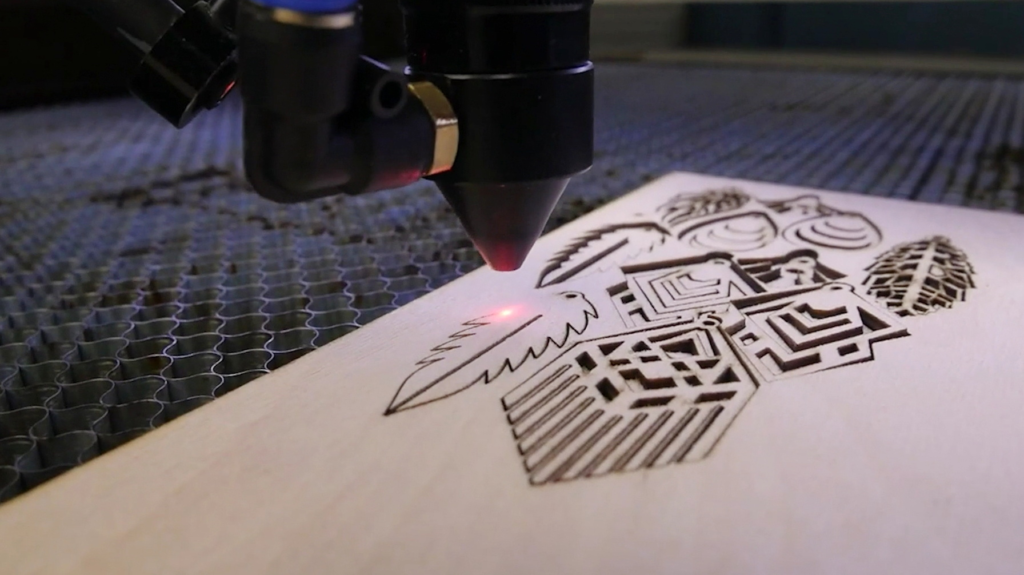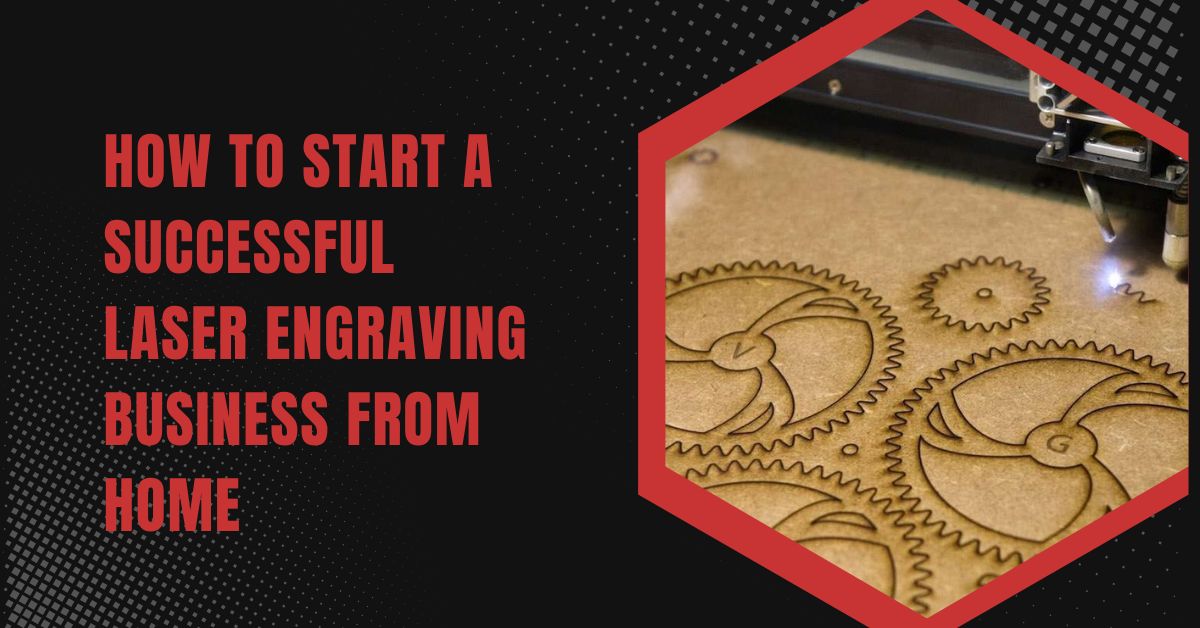Are you looking for a creative and profitable business that you can run from the comfort of your own home? Starting a laser engraving business might be the perfect opportunity for you. Laser engraving allows you to create personalized and customized products that people love. In this guide, we’ll walk you through everything you need to know to get started and succeed in your home-based laser engraving business.
Understanding Laser Engraving
Before diving into the business side, it’s important to understand what laser engraving is and why it’s a great choice for a home business.
What Is Laser Engraving?
Laser engraving is a process that uses a laser beam to etch designs, text, or images onto various materials. The laser removes a small amount of the material’s surface to create the desired pattern. Materials commonly used include wood, glass, metal, plastic, and leather.
Why Choose Laser Engraving as a Home Business?
Laser engraving is popular because it allows for high precision and customization. People are always looking for unique gifts, personalized items, and custom products. With laser engraving, you can meet this demand and tap into various markets like weddings, corporate gifts, awards, and more.
Note – Looking for top-notch Laser Engraving in Dubai? Consider Pleasant Plastic for high-quality, personalized products that stand out.
Setting Up Your Home Laser Engraving Business
Getting your business off the ground involves careful planning and setting up the right equipment and workspace.
Research and Planning
Start by researching the market to understand what products are in demand. Look at what other laser engraving businesses are offering and identify gaps you can fill. Create a business plan that outlines your goals, target market, pricing strategy, and marketing plan.

Choosing the Right Equipment
Your laser engraving machine is the heart of your business, so choosing the right one is crucial.
Types of Laser Engraving Machines
There are mainly two types of laser engraving machines suitable for home businesses:
- CO2 Laser Engravers: Ideal for engraving non-metal materials like wood, glass, acrylic, and leather.
- Fiber Laser Engravers: Best for engraving metals like stainless steel, aluminum, and brass.
Factors to Consider When Buying a Machine
- Power and Speed: Higher power allows you to engrave faster and handle thicker materials.
- Bed Size: Determines the maximum size of the material you can engrave.
- Software Compatibility: Ensure the machine works with user-friendly software.
- Budget: Prices can vary widely, so choose one that fits your budget without compromising on essential features.
Setting Up Your Workspace
Creating a safe and efficient workspace is important for your productivity and health.
Safety Considerations
- Ventilation: Laser engraving can produce fumes, so ensure your workspace is well-ventilated.
- Protective Gear: Use safety glasses and consider wearing gloves when handling materials.
- Fire Safety: Keep a fire extinguisher nearby, as some materials are flammable.
Necessary Tools and Supplies
- Computer: Needed for designing and controlling the laser engraver.
- Design Software: Programs like Adobe Illustrator or CorelDRAW help create designs.
- Materials: Stock up on the materials you plan to engrave.
- Maintenance Tools: Keep cleaning supplies and spare parts for your machine.
Developing Your Skills
Even with the best equipment, your success depends on your skills and creativity.
Learning the Basics
Take the time to learn how to operate your laser engraver properly. Read the manual, watch tutorials, and consider taking online courses.
Practicing with Different Materials
Each material reacts differently to laser engraving. Practice on various materials to understand the settings required for each.
Creating Unique Designs
Offer something special by developing your own designs. This sets you apart from competitors and adds value to your products.
Building Your Business
With your equipment ready and skills honed, it’s time to focus on the business aspects.
Defining Your Target Market
Identify who you want to sell to. This could be:
- Local Businesses: Offering corporate gifts or branded items.
- Event Planners: Providing customized items for weddings or parties.
- Online Shoppers: Selling personalized products through an online store.
Pricing Your Products
Set prices that cover your costs and provide a profit while remaining competitive.
- Calculate Costs: Include materials, machine operation, time, and overhead.
- Research Competitors: Know what others are charging for similar products.
- Offer Packages: Create bundles or bulk pricing for larger orders.
Marketing Strategies
Getting the word out about your business is essential for attracting customers.
Online Presence
- Website: Create a professional website showcasing your products.
- Online Store: Use platforms like Etsy, Shopify, or Amazon Handmade.
Social Media Marketing
- Facebook and Instagram: Share photos of your work and engage with potential customers.
- Pinterest: Great for visual products and driving traffic to your site.
Networking and Partnerships
- Local Businesses: Partner with shops to display or sell your products.
- Craft Fairs: Attend local events to showcase your work and meet customers.
Legal and Financial Considerations
Running a legitimate business means taking care of legal and financial matters.
Registering Your Business
- Business Name: Choose and register a unique name.
- Licenses and Permits: Check local regulations for any required licenses.
- Business Structure: Decide whether to operate as a sole proprietor, LLC, etc.
Understanding Taxes
- Tax ID Number: Obtain an Employer Identification Number (EIN) if necessary.
- Sales Tax: Know how to collect and remit sales tax on your products.
- Income Tax: Keep records of income and expenses for tax purposes.
Managing Finances
- Separate Accounts: Use a dedicated bank account for your business.
- Accounting Software: Tools like QuickBooks can help track finances.
- Budgeting: Plan for expenses like equipment maintenance and material restocking.
Tips for Success
To ensure your business thrives, consider these additional tips.
Providing Excellent Customer Service
Happy customers are repeat customers and can bring in referrals.
- Communication: Respond promptly to inquiries.
- Quality: Deliver high-quality products as promised.
- After-Sales Service: Address any issues or concerns promptly.
Staying Updated with Industry Trends
The laser engraving industry evolves, and staying informed can give you an edge.
- New Materials: Experiment with new engraving materials.
- Design Trends: Keep an eye on popular styles and themes.
- Technology Advances: Upgrade software or equipment when beneficial.
Continuous Learning and Improvement
Always look for ways to improve your skills and business operations.
- Feedback: Ask customers for reviews and suggestions.
- Education: Take advanced courses or workshops.
- Networking: Join industry groups or forums to learn from others.
Conclusion
Starting a successful laser engraving business from home is an exciting venture that combines creativity with entrepreneurship. By carefully planning, investing in the right equipment, honing your skills, and effectively marketing your products, you can build a profitable business that brings joy to your customers and satisfaction to you. Remember to stay committed, keep learning, and enjoy the journey of creating something unique from your own home.
For more insightful articles related to this topic, feel free to visit bloggingleads.com





